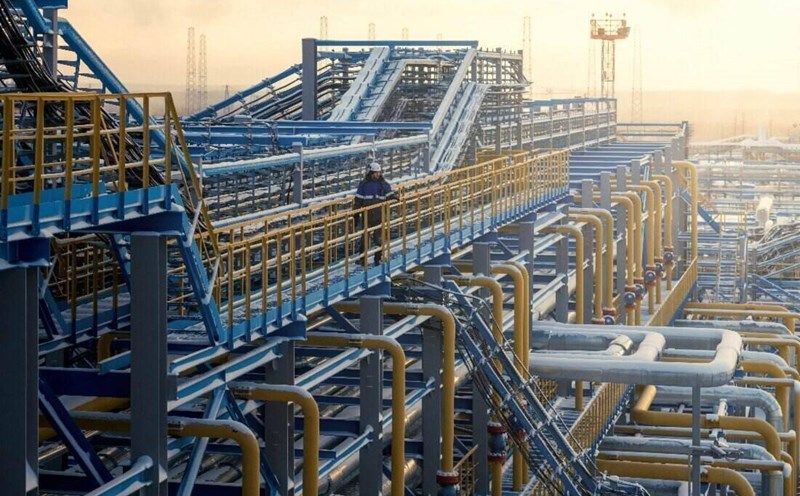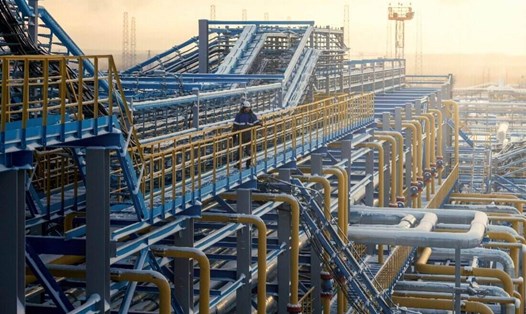Ukraine's closest allies are warning the European Union (EU) about reopening a Russian gas pipeline as part of a peace deal, CNBC reported.
This development came after the Financial Times on January 30 quoted many sources as saying that European officials were raising the idea of restoring gas flows from Russia to Europe in an agreement to end the Ukraine conflict in order to reduce energy costs in the region.
Estonia - a NATO member that shares a 294km border with Russia - is among those calling on the 27-nation bloc not to reopen the Russian gas pipeline.
The Eastern European country noted that restoring gas flows was inconsistent with the bloc's goal of phasing out fossil fuel imports from Russia by 2027.
Kadri Elias-Hindoalla, director of sanctions and strategic goods at the Estonian Foreign Ministry, said Europe should have learned lessons from Russia's war in Georgia in 2008. She also pointed out that the conflict in Ukraine reaffirmed the importance of finding alternative suppliers and improving the EU's energy independence.
“Our position is clear: We should maximize sanctions and minimize Russian energy imports,” she said.
For its part, the European Commission said the EU's executive body made no connection between the reopening of the gas pipeline and the Ukraine peace talks.
"We do not confirm any connection mentioned in the article... about any connection between gas transit through Ukraine and peace negotiations," EU spokeswoman Paula Pinho said on February 6.
The EU’s plan is to continue phasing out Russian gas, spokesman Pinho said. The EU adopted its 15th package of sanctions against Russia late last year.
Lithuania says ending the fighting in Ukraine must involve Kiev fully. The prospect of peace through dependence on Russian gas is “clearly one of the worst ideas in the history of the world,” according to former Lithuanian Foreign Minister Gabrielius Landsbergis.
Even if the conflict in Ukraine ends, Lithuanian President Gitanas Nauseda warned that Lithuania’s geography could make it vulnerable to a larger conflict. The country of 2.8 million people borders the Russian exclave of Kaliningrad to the west and shares a border with Russia’s ally Belarus to the east.
Russian gas exports to Europe via Ukraine have stopped in early 2025, marking the end of decades of Russian energy influence in Europe.
Ukrainian President Zelensky said at the time that Russia's suspension of gas transit through Ukraine to Europe was "one of Moscow's biggest failures" and called on the US to supply more gas to the EU.
Meanwhile, Russia warned that EU countries would likely be hardest hit by the supply disruption. Russia could still ship gas via the TurkStream pipeline, which connects Russia to Hungary, Serbia and Türkiye.
Poland - a staunch ally of Ukraine and another European country that shares a border with Russia's Kaliningrad - also called on EU countries not to reopen the Russian gas pipeline.
In an interview with the BBC last month, Polish President Andrzej Duda expressed hope that European leaders would learn from the Russia-Ukraine conflict and decide never to resume pumping gas through the Nord Stream pipeline linking Russia and northern Germany across the Baltic Sea.









